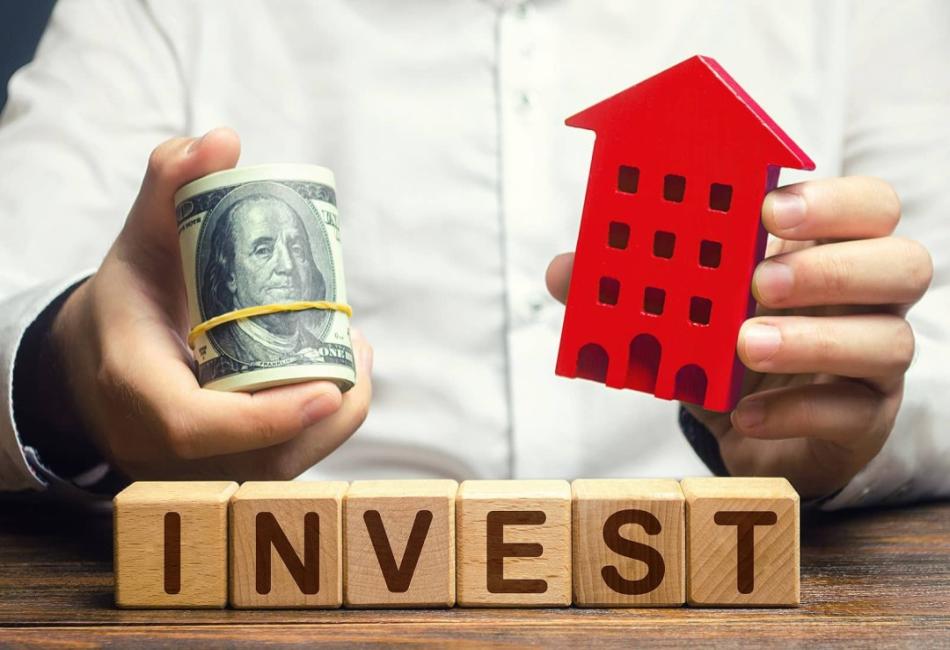For many individuals – teacher or otherwise – investment property is one of the best ways to create long-term wealth, earn passive income and diversify your financial portfolio. Unlike your primary home, an investment property is bought with the sole purpose of making money from it — either through rental income, a future sale, or both. Property investors all over the world invest in property not only to protect from risk, hedge against inflation but also for appreciation over time.
In this post we’re going to take a closer look at what an investment property is, why it’s still an attractive option, how to finance an investment property, including investment property loans and investment property mortgage rates, the role of a property investment company, and answers to common questions such as how to buy an investment property with no money, how much can I borrow for an investment property, and which investment has the least liquidity.
What is an Investment Property?
Before we go too much further, let’s cover the popular question: what is an investment property?
An investment property is a property that is real estate bought with the intention of earning a return. This might include a residential property (like a single-family home, duplex or apartment) that earns income or a commercial property (think office spaces, warehouses or retail stores) that receives steady lease payments. Some investors also purchase land to be held for appreciation or eventual development.
Investment properties are unique from personal homes because they are income-improving assets. You are not buying to live there, but buying to make money from it.
Why Choose Property Investment?
Real estate investing has proven to be one of the most dependable ways to build wealth. Here are a few reasons why that is:
- Appreciation Over Time – Real estate appreciates over time.
- Rents – Investors collect a monthly rent from the tenant.
- Tax Advantages – Write off mortgage interest, property tax, and maintenance costs.
- Diversification — Real estate offers a buffer for a portfolio heavy in stocks or bonds.
- Leverage – Borrowing lets you control expensive assets without having to pay for them entirely right away.
Unlike stocks, which can fluctuate wildly, investment real estate generally offers a combination of steady income and long-term growth.
Types of Investment Properties
Residential Investment Property
Single-family houses, duplexes, and the standard apartment building are the prevalent types of investment. These generate income through rent.
Commercial Investment Property
That includes office buildings, retail establishments, and warehouses. Commercial leases are typically longer, creating more stable income.
Short-Term Vacation Rentals
Your next real estate investment is now Airbnb and upscale luxury vacation homes. All provide higher short-term returns and demand more maintenance.
Land Investment
Some merely buy land to hold, and sell, later or to develop into residential or commercial projects.
Financing Your Investment Property
If there is one aspect of investing in real estate which is crucial, it is financing. Unlike primary residences, investment properties cost more to insure and fund as they pose more risk to lenders.
Investment Property Loans
Investment property loan is a loan specifically for real estate that is used for income production. Requirements often include:
- Higher down payments (usually 20–30%)
- Stronger credit scores (typically 680+)
- Proof of steady revenue to pay mortgage – Proof your income can afford the mortgage payments
- Savings for maintenance and emergency funds
Investment Property Mortgage Rates
Rates for investment properties are typically higher than that of primary homes. Lenders consider them riskier because borrowers may walk away if their rental income falls.
Typical trends include:
- Rental property mortgage rates 0.5–1% higher than primary home loans.
- Investors occasionally use adjustable-rate mortgages (ARMs) to help keep payments lower during the first few years.
- Fixed-rate options for long-term stability.

The Function of a Property Investment Company
A lot of new investors invest with a property investment company. These companies offer expertise in:
- Sourcing high-value investment properties.
- Property management and tenant relationships.
- Aiding in the purchase of investment property loans.
This can be invaluable for novices who just don’t have the bandwidth or know-how to oversee properties themselves.
How to Buy Investment Property
One of the most frequently asked is how to buy investment property or how to buy investment property as a beginner. Here’s a step-by-step guide:
- Define Your Objectives – Steady rental income, future appreciation, or flip and sell?
- Market Research – Concentrate on high demand area with good job growth, schools, and amenities.
- Get Financing Approved – Look at investment real estate loans and compare lenders.
- Use a Realtor – Real estate agents can find investment properties for you.
- ROI – Work numbers (taxes, insurance, maintenance) against rental income.
- Closing the Loop – Finalize financing, paperwork, and ownership.
- Management – Do it yourself with self-management or outsource to a property investment company for convenience.
Risks of Investment Property
Although profitable, investing in property does come with risks:
- Vacancy Risk – You don’t want a property that’s sucking money out of your bank account due to a lack of tenants.
- Market Fluctuations – Values may decline in an economic downturn.
- Cost of Upkeep – A mature property may need costly fixing up.
- Liquidity – Real estate is less liquid than stocks or savings.
Here we go, right into the FAQ: What investment is the least liquid? Between property, stocks, a savings account and a 401(k), property tends to be the least liquid; selling it generally takes a lot of time and comes with high transaction costs.
How Much Can I Borrow to Buy an Investment Property?
If you’re wondering how much can I borrow for an investment property, you have a few potential answers, and here they are:
- Your credit score and debt-to-income ratio.
- Your available down payment.
- The lender’s determination of the risk associated with the property.
The financial institution will generally sanction a loan of about 70–80% of the property value. For example, if a property is worth $300,000, you might borrow around $240,000, if you’re eligible.
Tax Benefits of Investment Property
Investors have numerous tax benefits, such as:
- Business use of your car or home
- Mortgage interest on investment property loans
- Property taxes
- Depreciation
- Repairs and maintenance
- Property management fees
These write-offs offset taxable income and make real estate very appealing next to other investments.
The Future of Property Investment
The need for rental homes is increasing because of a growing population, an increase in working from home, and higher housing prices. Investors in sustainable, environmentally friendly and smart homes are particularly poised for success. Dealing with a property investment company is the way to get expert advice in a fluctuating market.
Conclusion
An investment property can be one of the most lucrative wealth-building tools, delivering a combination of passive income, appreciation and tax benefits. From knowing what an investment property is, researching financing options such as investment property loans and investment property mortgage rates to building a working relationship with a property investment company, investing well takes planning and effort.
Whether you’re a beginner to buying investment property or you want to add to your portfolio, real estate has proven to be a wealth-building vehicle for financial freedom.
FAQs About Investment Property
Q1: What is an investment property?
An investment property is any investment that sits outside shares, commodities, bonds, savings accounts and similar. It is property (land, a building, residential or commercial structure) purchased with the goal of earning a return on the investment, either through renting, future resale or both.
Q2: How to purchase an investment property?
Begin by establishing financial objectives, obtaining funds through investment property loans, selecting markets you are interested in and working out ROI before taking the plunge.
Q3: How do you purchase an investment property?
Partner with a seasoned realtor, pre-apply for a loan, and decide on whether to self-manage or hire a property investment group.
Q4: How big of a loan can I get for an investment property?
The majority of the lenders would consider up to 70–80% of the value of the property, depending on your credit score and financial strength.
Q5: Which one of the following is the least liquid investment? A home? Stocks? A savings account? A 401(k)?
It generally is the asset class with the least liquidity because selling it is time-consuming and incurs high transaction costs.
Read Also : Luxury Homes: Redefining Comfort and Style
AI’s Practical and Operational Influence on the Business Landscape
The Influence of Leadership on the Phenomenon of Business Success

